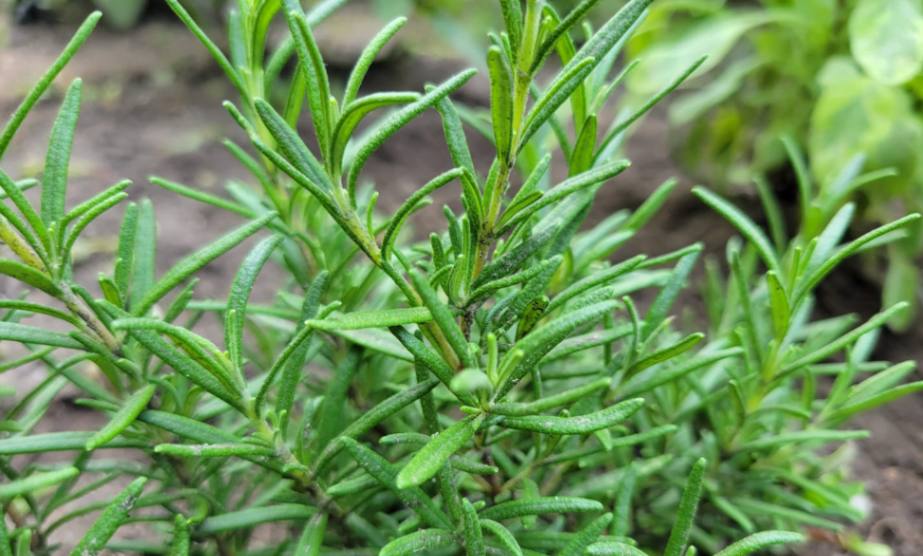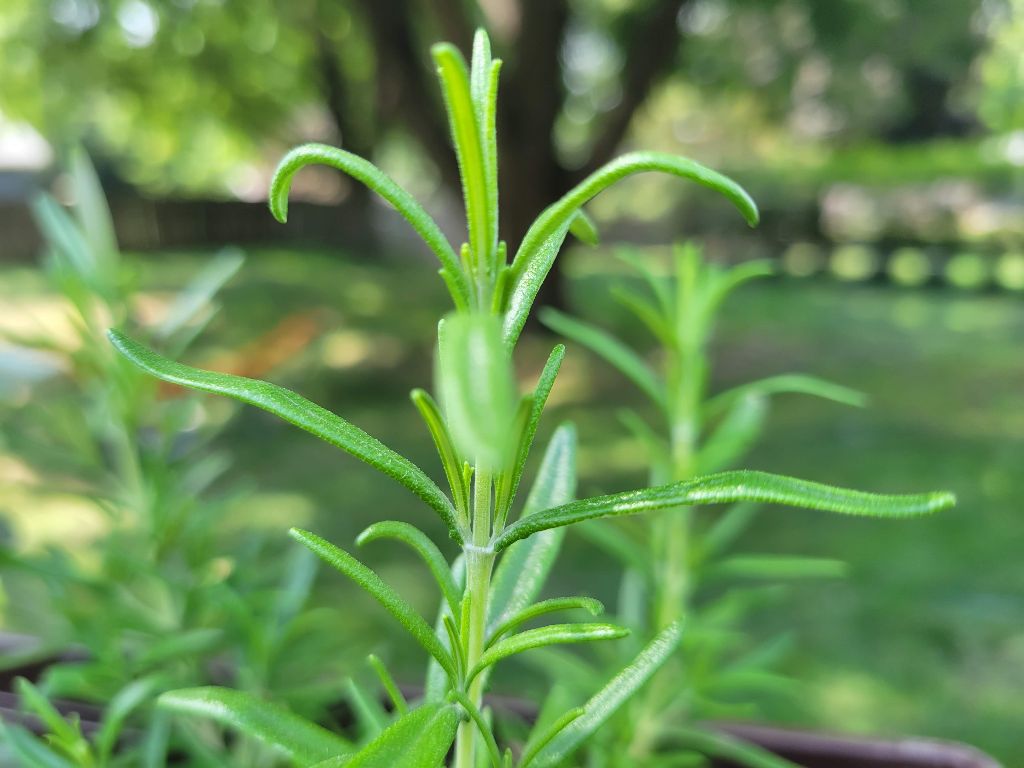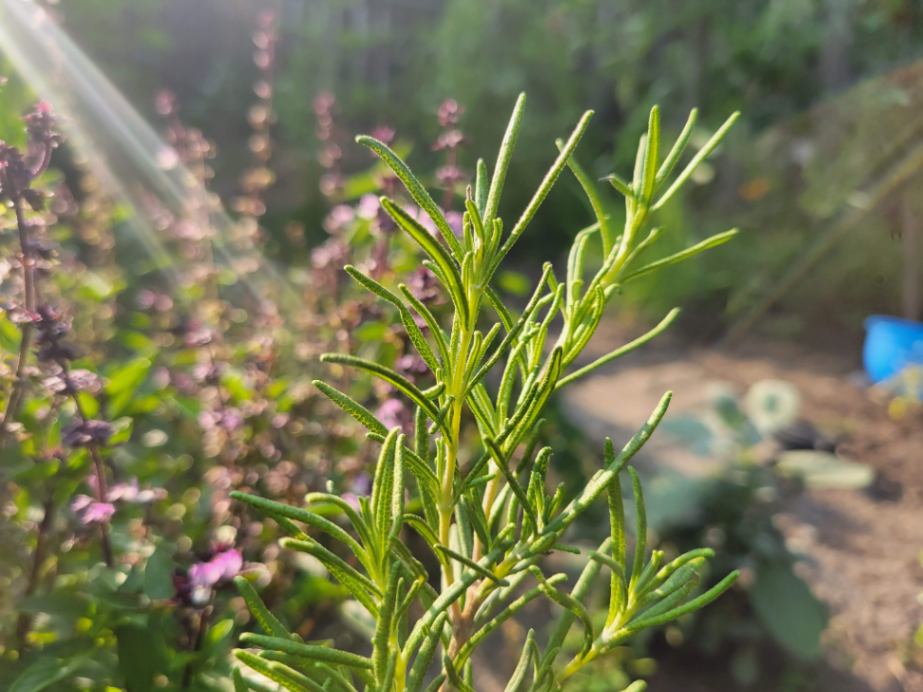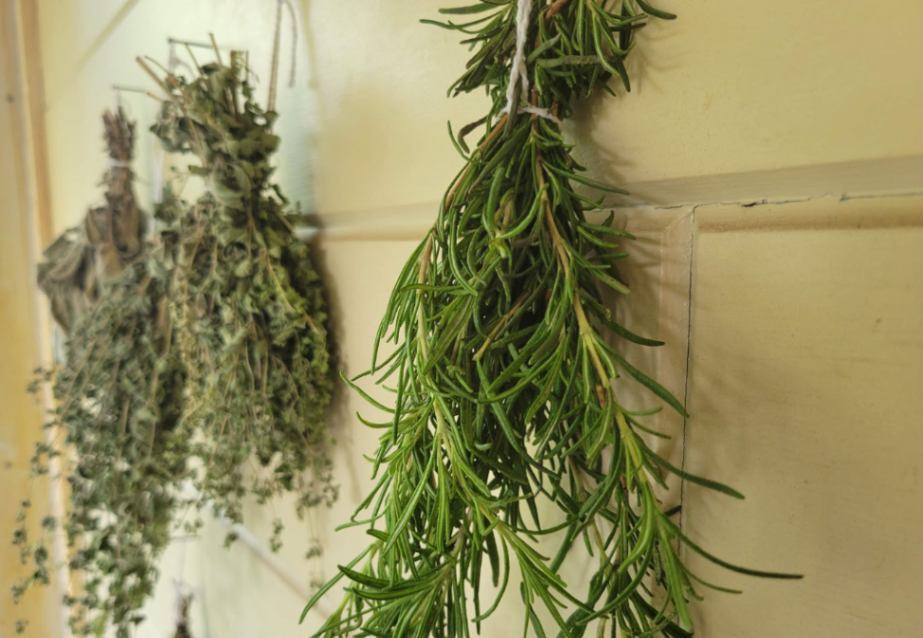This post may contain affiliate links which means I may receive a commission for purchases made through links. I only recommend products that I have personally used. As an Amazon Associate I earn from qualifying purchases. Learn more on my Private Policy page.
If you’re curious about the practice of planting rosemary by your garden gate, understand that there’s a blend of folklore and practicality behind this charming tradition with a literary origin.
Keeping rosemary by your garden gate, a concept from Alice Hoffman’s “Practical Magic,” symbolizes protection and offers practical benefits: it repels pests, attracts pollinators, emits a delightful aroma, provides easy access for cooking, and has cultural associations with good luck.
Let’s dig deeper into the origin and benefits of keeping rosemary by your garden gate, rosemary’s pest-repellent properties, and the convenience of growing rosemary near your garden entrance for culinary purposes.
Table of Contents
See my Complete Guide to Rosemary for a comprehensive overview of this aromatic herb.
Keep Rosemary by Your Garden Gate Origin

The prudent guidance to keep rosemary by your garden gate originates from Alice Hoffman’s novel Practical Magic and its subsequent film adaptation starring Sandra Bullock and Nicole Kidman.
In this enchanting story exploring the lives of the Owen sisters, who come from a long line of witches, one piece of advice passed down through the generations is to keep rosemary by one’s garden gate. The herb symbolizes protection and serves as a barrier against negative energies.
There are some things though I know for certain: always throw spilled salt over your left shoulder, keep rosemary by your garden gate, plant lavender for luck, and fall in love whenever you can.
— Practical Magic, film adaptation
This quote, as presented in the novel, is somewhat more elaborate; the extended version reads:
There are some things, after all, that Sally Owens knows for certain: Always throw spilled salt over your left shoulder. Keep rosemary by your garden gate. Add pepper to your mashed potatoes. Plant roses and lavender, for luck. Fall in love whenever you can.
— Alice Hoffman, Practical Magic

Benefits of Keeping Rosemary by Your Garden Gate
Keeping rosemary by your garden gate offers numerous benefits that enhance your overall gardening experience. One of the key advantages is the delightful fragrance that greets you every time you enter or leave your garden. As you pass through the gate, the aromatic scent of rosemary fills the air, creating a pleasant and inviting atmosphere.
- Pest Repellent Properties of Rosemary: Keeping rosemary by your garden gate is advantageous for your garden because of its natural ability to repel pests. Rosemary contains compounds such as camphor and rosmarinic acid that deter pests like mosquitoes, aphids, and spider mites.
- Rosemary’s Beauty and Utility as a Garden Element: Positioning rosemary by your garden gate creates a visually appealing and useful aspect of your garden. Its lush green foliage and soft blue blossoms enhance any entryway, while its culinary uses offer easy access to fresh flavor right from the entrance of your garden.
- Rosemary Promotes a Diverse Ecosystem: Rosemary has a vital role in garden ecosystems. It helps to attract important pollinators, encourages biodiversity, and can be used as a companion plant.
Rosemary is a Natural Pest Deterrent
Rosemary Scent Wards off Rabbits and Deer from Garden
One of the benefits of keeping rosemary by your garden gate is that its scent is a natural deterrent for garden invaders like rabbits and deer. These animals are known to munch on plants and vegetables, wreaking havoc in gardens.

Rosemary has a strong smell that rabbits and deer don’t like, so they are more likely to stay away from your garden if you have rosemary near your garden gate.
Rosemary Discourages Insect Pests
In addition to deterring larger pests like rabbits and deer, rosemary also works wonders in keeping smaller nuisances at bay.
- Mosquitoes: Rosemary can be planted near your garden gate to ward off mosquitoes. These pesky insects are well-known for their annoying bites and ability to spread diseases. So, rosemary can help keep them at bay when you enjoy your time outdoors.
- Aphids: Rosemary is a useful plant in your garden because it helps keep aphids away. These pesky insects are a common problem in gardens, and they can cause damage to various vegetables such as potatoes, peppers, cabbage, and asparagus. By having rosemary nearby, you can deter aphids from attacking your crops.
- Spider Mites: Rosemary has the added benefit of keeping spider mites away from your garden. These little pests feed on strawberries, blueberries, cucumbers, peas, tomatoes, and lettuce.
Not only does rosemary offer a fragrant addition to your garden landscape, but it also serves as a natural and effective way to keep pests at bay. By harnessing the power of this versatile herb, you can create a more enjoyable and pest-free outdoor environment.

Enhancing Garden Balance with Rosemary
Rosemary plays a significant role in garden ecosystems. This versatile herb offers numerous benefits, from attracting essential pollinators to promoting biodiversity and serving as a companion plant.
Rosemary Attracts Pollinators to Your Garden
Rosemary in your garden is great for attracting pollinators like bees and butterflies, which play a vital role in helping plants reproduce by moving pollen from one flower to another. By providing an abundant source of nectar and pollen, rosemary is a magnet for these beneficial creatures. As they visit the flowers on the rosemary plant, they inadvertently carry pollen from other plants in your garden, facilitating cross-pollination and ensuring the continued growth of various plant species.
Promote Biodiversity and Successful Plant Reproduction
The presence of pollinators in your garden is vital for maintaining biodiversity. Bees and butterflies in your garden promote genetic diversity within plant populations and contribute to healthier ecosystems. Increased biodiversity improves resilience against pests and diseases, making your garden more robust and sustainable.
To maximize the benefits of rosemary in your garden, consider planting it alongside other flowering plants that attract pollinators. This will create a diverse and enticing landscape that encourages the presence of bees, butterflies, and other beneficial insects. Furthermore, by providing a variety of nectar-rich flowers throughout the growing season, you can ensure a continuous food source for these pollinators.

Rosemary as a Companion Plant
Rosemary creates a harmonious environment for other plants. It has natural oils that protect against pests and diseases while attracting beneficial insects. This makes rosemary a wonderful companion to vegetables like beans, carrots, and cabbage. Rosemary also grows well alongside other drought-tolerant herbs such as thyme, oregano, sage, and lavender.
For more information on which vegetables and herbs grow best with rosemary (and which do not), check out my article on rosemary companion planting below…
Rosemary Companion Planting: Effortless Garden Pairings
Optimize your garden with rosemary companion planting. Discover ideal plants to pair and those to avoid for a thriving garden. Read More…
Convenience of Rosemary Near the Garden Entrance
With rosemary by your garden gate, you’ll have easy access to this versatile herb whenever you need it for culinary purposes or herbal remedies. Its aromatic leaves can be plucked and used fresh immediately.
When rosemary is just a step away from your kitchen, adding fresh herbs to your meals becomes incredibly convenient. Whether roasting vegetables, preparing a marinade, or seasoning meats, fresh rosemary can significantly elevate the flavor of your dishes.
Rosemary is a Good Luck Charm
The presence of rosemary is believed in many cultures to have magical properties and bring good luck, positive energy, and protection. So, having rosemary by your garden gate goes beyond its practical uses; it adds a touch of enchantment and symbolism to your outdoor space.
Rosemary for Protection In Irish Folklore
In many cultures, rosemary is believed to bring good fortune and protect against evil spirits. In Ireland, rosemary was used to ward off fairies, poltergeists, and spirits. An Irish belief suggested that hanging rosemary over a cradle could prevent fairies from replacing a baby with a changeling[1].
Rosemary’s Protective Charm Against Witchcraft
In rural Alabama during the 19th century, people strongly believed in the magical abilities of rosemary to bring protection and good luck. It was commonly thought that carrying a sprig of rosemary brought good luck and provided a shield against witchcraft. The tradition of wearing rosemary was especially prevalent, as it was believed to protect individuals from being bewitched, reflecting a deep-rooted cultural connection between herbs and supernatural protection[2].

Literary and Historical Significance of Rosemary
Beyond Alice Hoffman’s Practical Magic, other literary works also mention the importance of keeping rosemary, not just in practical terms but also in a symbolic sense.
Rosemary for Remembrance According to Shakespeare
In Shakespeare’s play Hamlet, Ophelia speaks about herbs and flowers with symbolic meanings, including rosemary for remembrance.
There’s rosemary, that’s for remembrance; pray you, love, remember. And there is pansies, that’s for thoughts.
— William Shakespeare, Hamlet
In Shakespearean times, it was believed that the scent of rosemary could enhance memory and improve cognitive function. People would often wear sprigs of rosemary or keep it nearby while studying or attending important events to aid in remembering information.

The association between rosemary and memory has persisted throughout history and across cultures. It is said that ancient Greek students would place sprigs of rosemary in their hair while studying for exams, hoping to retain knowledge better[3]. Even today, some students might still keep a small pot of rosemary on their study desk as a good luck charm.
Rosemary in Ancient Roman Funerals: A Symbol of Eternal Life
In ancient Rome, rosemary was deeply intertwined with funeral rites and commemorating the deceased. This practice dates back to at least 1000 BC, a tradition not exclusive to the Romans but also observed by the ancient Egyptians, who used rosemary, among other essential oils, for embalming the dead.
The Romans themselves carried rosemary during funeral processions, leaving sprigs of rosemary with the body, which was partly rooted in the symbolism of rosemary as an evergreen plant associated with eternal life. Rosemary’s enduring presence at funerals and in burial grounds was noted by English statesman Sir Thomas More in the early sixteenth century, who remarked on its emblematic role in funeral wakes and burial grounds. More highlighted rosemary’s ‘dumb language’’ referring to its silent yet powerful symbolic communication of remembrance and the eternal cycle of life and death[4].

Conclusion
The tradition of planting rosemary by the garden gate, as popularized by Alice Hoffman’s “Practical Magic,” is deeply rooted in both folklore and practical gardening wisdom. This charming practice is not just a nod to literary and cultural heritage but also offers tangible benefits for gardeners and their gardens.
Rosemary’s aromatic presence enhances the garden’s ambiance, its pest-repellent properties protect other plants, and its role in attracting pollinators promotes biodiversity. Additionally, rosemary’s easy accessibility near the garden entrance makes it a convenient culinary herb, and its historical and cultural associations imbue gardens with a sense of protection and good luck.
Whether for its scent, practical uses, or symbolic meanings, rosemary by the garden gate is a tradition that beautifully marries the mystical with the pragmatic.
Sources
- Sedgewick, Icy. “Rosemary Folklore: From Tudor Weddings to Victorian Funerals.” icysedgewick.com, July 16, 2022, https://www.icysedgwick.com/rosemary-folklore/
- Nutritional Geography, UC Davis. (n.d.). Retrieved from https://nutritionalgeography.faculty.ucdavis.edu/rosemary/
- Kreifer, Heather. “4 Reasons To Love Rosemary.” MakeScentsSpaLine.com, March 15, 2016, https://makesscentsspaline.com/4-reasons-to-love-rosemary/
- Flipping, Susan. “Rosemary for Remembrance.” Institute of Civil Funerals, www.iocf.org.uk, June 9, 2021, https://www.iocf.org.uk/rosemary-for-remembrance/
Last Updated on 12 November 2023 by Bob Lee


